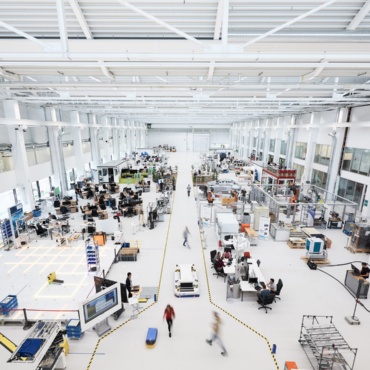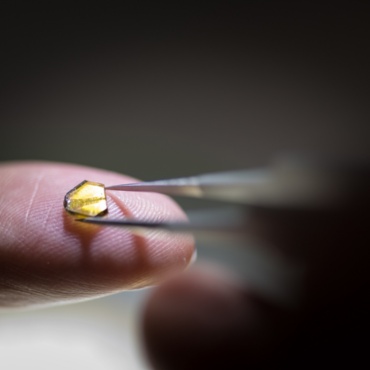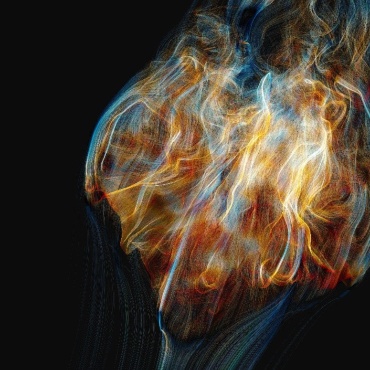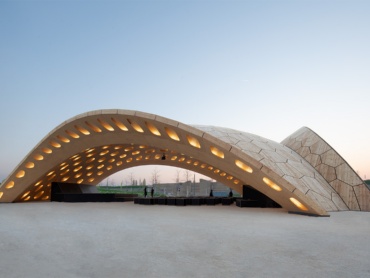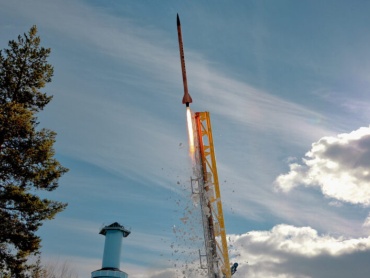
How can we harness the power of modern computers to construct housing for an increasing global population whilst simultaneously minimizing our use of resources? How might we develop quantum technologies to drive innovation both in research and practical applications using novel building blocks and structures? How will we shape technology and progress in line with ethical standards and in the interests of mankind? In what ways can we combine novel materials, intelligent robotics, and medical science to improve healthcare? How can we further develop simulations to achieve even better approximations of the world and make them more user-friendly in their various fields of application?
These and other questions are the current focus of researchers at the University of Stuttgart, whose goal is to find solutions to some of the major societal challenges facing us today.
Strategic profile areas
The University of Stuttgart focuses on a number of strategic fields of research, bringing together leading researchers from various disciplines. These strategic profile areas have an enormous potential for development and result in innovations, which, beyond their contribution to basic science, benefit society as a whole.
[Photos: e-Genius, IFB, ICD/ITKE/IntCDC, University of Stuttgart / Roland Halbe, Florian Sterl / Sterltech Optics, University of Stuttgart / Uli Regenscheit, Corinna Spitzbarth, Universität Stuttgart / Max Kovalenko, DFG / Jakob Dürrwächter, Daniel Kempf, Claus-Dieter Munz]
Research fields
The University of Stuttgart’s core research fields form the thematic focus. We have built up many years of expertise in basic and application-oriented research in order to address socially relevant topics such as energy, mobility, health, and environmental conservation.
- Clean Energy, Processes, and Mobility
- Formal and Computational Sciences
- Intelligent Engineering Systems
- Life Sciences and Bioengineering
- Quantum, Matter, and Materials
- Reflecting on Humanity and Society
- Sustainable Construction and Cities
Der Stuttgarter Weg (The Stuttgart Way)
The “Stuttgart Way” stands for interdisciplinarity in research and teaching. The University of Stuttgart bridges the gaps between engineering, the natural sciences, and the humanities‑, as well as the economic and social sciences, and collaborates across institutional boundaries, examining various topics from different perspectives with a focus on dialog. We offer researchers, lecturers and students anideal framework for raising new questions and collaborating to find solutions as well as to reflect on the benefits of one’s own research outcomes.
Excellent research conditions
The University of Stuttgart is part of a thriving research and business ecosystem providing a hub within Stuttgart’s high-tech region for university, non-university, and industrial sector-based research. We collaborate closely with the universities of Karlsruhe, Tübingen, and Ulm and network with other universities around the world as well as Fraunhofer and Max Planck institutes in addition to globally active industrial companies. Our High Performance Computing Center Stuttgart (HLRS), AMICA equipment center, and Competence Center for Research Data provide our researchers with an optimal infrastructure.
Excellent conditions for research, studies and cooperation
You might also be interested in
[Photos: ICD/ITKE/University of Stuttgart, HyEnD / University of Stuttgart]
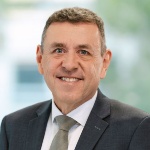
Manfred Bischoff
Prof. Dr.Vice Rector for Research and Sustainable Development
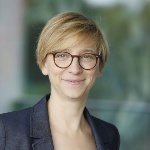
Carola Föller
Dr.Personal Assistant to the Vice Rector for Research and Sustainable Development
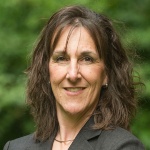
Birgit Harrer
Head of Department / Deputy head of division / Coordination of applications for DFG Collaborative Research Centers and Transregios






